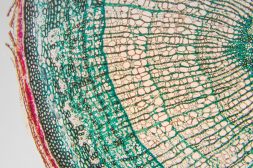Definition
noun, plural: scleroproteins
A type of protein characterized by being fibrous and its function which is to provide a protective and structural support in connective tissues
Supplement
Proteins are one of the most essential biomolecules. They serve as structural material, as enzymes, as transporters, as antibodies, or as gene expression regulators. They are made up of polymers comprised of amino acids. They may be classified based on its form and main functions: globular proteins (spheroproteins) like most enzymes, fibrous proteins (scleroproteins) that provide structural support; and membrane proteins that serve as receptors or channels for polar or charged molecule to pass through the cell membrane.
Scleroproteins are long protein filaments that serve as structural proteins. They are usually water-insoluble. Thus, they may form a protective barrier that is almost waterproof such as keratin. Keratin is a constituent of hair, nails, skin, feathers, hooves, horns, etc. Apart from keratin, scleroproteins also occur as collagen, elastin, and fibroin. Fibroin is one of the groups of proteins found in the silk of certain arthropods such as arachnids and insects. Scleroproteins are found as component of connective tissues, tendons, bone matrices, and muscle fibers.
Synonym(s):
- fibrous protein
- albuminoid
Compare:
See also:







